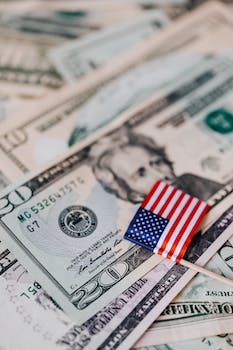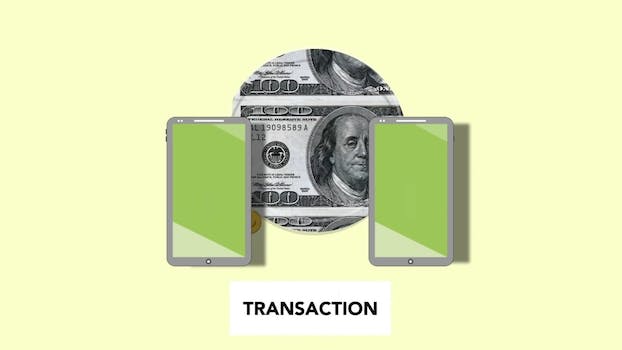

-
Table of Contents
"Unlock the Power of Referral Marketing: 10 Examples to Ignite Viral Buzz!"
Introduction
Referral marketing is a powerful strategy that leverages word-of-mouth recommendations to generate viral buzz and drive customer acquisition. By incentivizing existing customers to refer their friends and family, businesses can tap into the power of social networks and expand their customer base. In this article, we will explore 10 examples of referral marketing campaigns that have successfully generated viral buzz and delivered impressive results.
Benefits of Referral Marketing for Business Growth
Referral marketing has become an increasingly popular strategy for businesses looking to generate viral buzz and drive growth. By leveraging the power of word-of-mouth, businesses can tap into their existing customer base to acquire new customers and increase brand awareness. In this article, we will explore the benefits of referral marketing for business growth and provide 10 examples of successful referral marketing campaigns.
One of the key advantages of referral marketing is its ability to reach a wider audience. When customers refer their friends and family to a business, they are essentially acting as brand ambassadors, spreading the word about the company's products or services. This can lead to a significant increase in brand exposure and attract new customers who may not have otherwise discovered the business.
Referral marketing also has the potential to generate high-quality leads. When a customer refers someone to a business, they are likely to have already vetted the product or service and believe it to be of value. This means that the referred customer is more likely to convert into a paying customer, resulting in a higher return on investment for the business.
Furthermore, referral marketing can help businesses build trust and credibility. People are more likely to trust recommendations from friends and family than traditional advertising. By encouraging customers to refer others, businesses can tap into this trust and establish themselves as a reputable and reliable brand.
Now let's take a look at some examples of successful referral marketing campaigns that have generated viral buzz.
1. Dropbox: Dropbox's referral program offered users additional storage space for every friend they referred. This incentivized users to spread the word about Dropbox, resulting in a massive increase in sign-ups.
2. Uber: Uber's referral program rewarded both the referrer and the referred with free rides. This created a win-win situation and encouraged users to refer their friends and family to the platform.
3. Airbnb: Airbnb's referral program offered travel credits to both the referrer and the referred. This not only incentivized users to refer others but also encouraged new users to sign up and book their first stay.
4. Tesla: Tesla's referral program offered rewards such as free Supercharging and the chance to win a new Tesla car. This created a buzz among Tesla enthusiasts and generated a significant number of referrals.
5. PayPal: PayPal's referral program rewarded users with cash for referring friends who signed up and made a transaction. This helped PayPal acquire new customers and increase its user base.
6. Harry's: Harry's, a men's grooming brand, offered customers free products for referring their friends. This not only helped Harry's acquire new customers but also encouraged repeat purchases from existing customers.
7. Evernote: Evernote's referral program offered users premium features for referring others. This incentivized users to spread the word about Evernote and helped the company grow its user base.
8. Dollar Shave Club: Dollar Shave Club's referral program offered customers free razors for referring their friends. This helped the company acquire new customers and establish itself as a leading player in the shaving industry.
9. Amazon: Amazon's referral program allowed users to earn commission by referring others to purchase products on the platform. This created a network of affiliates who promoted Amazon's products and drove sales.
10. Glossier: Glossier's referral program offered customers store credit for referring their friends. This not only helped Glossier acquire new customers but also fostered a sense of community among its customers.
In conclusion, referral marketing can be a powerful tool for businesses looking to generate viral buzz and drive growth. By leveraging the power of word-of-mouth, businesses can tap into their existing customer base to acquire new customers and increase brand awareness. The examples provided in this article demonstrate the effectiveness of referral marketing in various industries and highlight the benefits it can bring to businesses.
How to Implement a Successful Referral Marketing Campaign

Referral marketing has become an increasingly popular strategy for businesses looking to generate viral buzz and increase their customer base. By leveraging the power of word-of-mouth, companies can tap into the networks of their existing customers to reach new potential customers. In this article, we will explore 10 examples of successful referral marketing campaigns and discuss how you can implement a similar strategy for your own business.
1. Dropbox: One of the most well-known examples of referral marketing is Dropbox. By offering users additional storage space for every friend they referred, Dropbox was able to rapidly grow its user base. This simple incentive encouraged users to spread the word about the cloud storage service, resulting in exponential growth.
2. Uber: Uber's referral program is another great example of how to implement a successful referral marketing campaign. By offering both the referrer and the referred friend a discount on their next ride, Uber was able to quickly expand its customer base and establish itself as a leader in the ride-sharing industry.
3. Airbnb: Airbnb's referral program is similar to Uber's, offering both the referrer and the referred friend a discount on their next booking. This strategy not only incentivizes existing users to refer their friends but also encourages new users to sign up and try the platform.
4. Tesla: Tesla's referral program takes a different approach by offering rewards such as free Supercharging or even a chance to win a new Tesla car. This unique incentive not only encourages referrals but also creates a sense of excitement and exclusivity among Tesla owners.
5. Harry's: Harry's, a men's grooming brand, implemented a referral program that rewarded customers with store credit for every friend they referred. This not only helped Harry's acquire new customers but also encouraged repeat purchases from existing customers.
6. Dollar Shave Club: Dollar Shave Club's referral program is similar to Harry's, offering customers store credit for every friend they refer. By leveraging the power of social media and email marketing, Dollar Shave Club was able to reach a wide audience and rapidly grow its customer base.
7. Evernote: Evernote's referral program offers users additional storage space for every friend they refer. This strategy not only encourages users to refer their friends but also helps Evernote increase its user engagement and retention.
8. PayPal: PayPal's referral program offers both the referrer and the referred friend a cash reward. This incentive not only encourages users to refer their friends but also helps PayPal increase its user base and transaction volume.
9. Amazon: Amazon's referral program, known as Amazon Associates, allows website owners to earn a commission for referring customers to Amazon. This strategy not only helps Amazon increase its sales but also creates a network of affiliates who promote the platform.
10. Glossier: Glossier, a beauty brand, implemented a referral program that offers customers store credit for every friend they refer. This strategy not only helps Glossier acquire new customers but also creates a sense of community and loyalty among its customers.
Implementing a successful referral marketing campaign requires careful planning and execution. Here are some key steps to consider:
1. Define your goals: Determine what you want to achieve with your referral marketing campaign, whether it's increasing sales, acquiring new customers, or improving customer loyalty.
2. Choose the right incentive: Select an incentive that is appealing to both the referrer and the referred friend. This could be a discount, store credit, free product, or even a chance to win a prize.
3. Make it easy to refer: Provide customers with a simple and convenient way to refer their friends, whether it's through a referral link, email, or social media sharing.
4. Track and measure results: Use analytics tools to track the success of your referral marketing campaign and make adjustments as needed.
5. Promote your referral program: Spread the word about your referral program through various marketing channels, such as email marketing, social media, and your website.
In conclusion, referral marketing can be a powerful tool for generating viral buzz and expanding your customer base. By learning from successful examples like Dropbox, Uber, and Airbnb, and implementing a well-planned referral marketing campaign, you can harness the power of word-of-mouth to drive growth for your business.
Case Studies: 10 Examples of Viral Referral Marketing Campaigns
Referral marketing has become an increasingly popular strategy for businesses looking to generate viral buzz and increase their customer base. By leveraging the power of word-of-mouth, companies can tap into the networks of their existing customers and turn them into brand advocates. In this article, we will explore 10 examples of viral referral marketing campaigns that have successfully generated buzz and brought in new customers.
1. Dropbox: Dropbox is a prime example of how referral marketing can lead to exponential growth. By offering users additional storage space for every friend they referred, Dropbox was able to quickly expand its user base and become a household name in cloud storage.
2. Uber: Uber's referral program is another success story. By giving both the referrer and the referred friend a discount on their next ride, Uber was able to rapidly grow its user base and establish itself as the go-to ride-sharing service.
3. Airbnb: Airbnb's referral program offers both the referrer and the referred friend a credit towards their next booking. This incentivizes users to refer their friends and family, leading to a steady stream of new customers for the platform.
4. Tesla: Tesla's referral program is unique in that it rewards customers with exclusive perks, such as a chance to win a free car or a Powerwall. This not only encourages customers to refer others but also creates a sense of exclusivity and excitement around the brand.
5. Harry's: Harry's, a men's grooming brand, used referral marketing to great effect by offering customers free products for referring their friends. This not only helped them acquire new customers but also fostered a sense of loyalty among their existing customer base.
6. Dollar Shave Club: Dollar Shave Club's referral program offers customers a $5 credit for every friend they refer. This simple yet effective strategy helped the company grow rapidly and disrupt the traditional shaving industry.
7. Evernote: Evernote's referral program rewards users with premium features for referring their friends. This not only incentivizes users to refer others but also encourages them to upgrade to the premium version of the app.
8. PayPal: PayPal's referral program offers both the referrer and the referred friend a cash reward. This not only helps PayPal acquire new customers but also encourages users to engage with the platform and make transactions.
9. Glossier: Glossier, a beauty brand, used referral marketing to build a community of loyal customers. By offering customers a discount on their next purchase for referring their friends, Glossier was able to create a sense of belonging and exclusivity around their brand.
10. Amazon: Amazon's referral program, known as Amazon Associates, allows users to earn a commission for referring customers to the platform. This has helped Amazon become one of the largest e-commerce platforms in the world.
In conclusion, these 10 examples of viral referral marketing campaigns demonstrate the power of leveraging existing customers to generate buzz and acquire new customers. By offering incentives, exclusive perks, or cash rewards, these companies were able to tap into the networks of their customers and turn them into brand advocates. Whether it's through discounts, free products, or the chance to win exclusive prizes, referral marketing has proven to be an effective strategy for businesses looking to generate viral buzz and grow their customer base.
Q&A
1. What are some examples of referral marketing campaigns that have generated viral buzz?
- Dropbox's "Refer a Friend" program
- Uber's "Give $20, Get $20" referral program
- Airbnb's referral program offering travel credits
- Tesla's referral program with rewards like free Supercharging
- PayPal's referral program offering cash rewards
- Evernote's referral program with premium account upgrades
- Amazon's referral program offering gift cards
- Google's "Invite Friends" program for Google Apps
- Spotify's referral program offering extended free trials
- Groupon's referral program with discounts for both referrer and referee
2. How can referral marketing campaigns generate viral buzz?
- By offering attractive incentives or rewards to both the referrer and referee
- By leveraging social media platforms for easy sharing and tracking of referrals
- By creating a sense of exclusivity or limited-time offers
- By encouraging users to share their referral links with their networks
- By utilizing creative and engaging marketing materials or content
- By implementing gamification elements to make the referral process fun and interactive
- By leveraging influencers or brand ambassadors to promote the referral program
- By providing seamless and user-friendly referral tracking and redemption processes
- By continuously optimizing and improving the referral program based on user feedback
- By fostering a strong brand community and encouraging user-generated content related to referrals.
3. How can businesses benefit from implementing referral marketing campaigns?
- Increased customer acquisition through word-of-mouth marketing
- Higher customer retention rates as referred customers tend to be more loyal
- Cost-effective marketing strategy compared to traditional advertising methods
- Enhanced brand awareness and visibility through viral sharing
- Improved customer trust and credibility due to recommendations from friends or family
- Valuable customer insights and data through referral tracking and analysis
- Potential for exponential growth as successful referrals lead to more referrals
- Strengthened customer relationships through incentivized sharing and engagement
- Increased sales and revenue through the acquisition of new customers
- Competitive advantage in the market by leveraging the power of referrals.
Conclusion
In conclusion, referral marketing is a powerful strategy that can generate viral buzz for businesses. Here are 10 examples of referral marketing techniques:
1. Referral programs: Offering incentives to customers who refer others to your business.
2. Affiliate marketing: Partnering with influencers or affiliates to promote your products or services.
3. Customer reviews and testimonials: Encouraging satisfied customers to share their positive experiences.
4. Social media sharing: Encouraging customers to share your content or promotions on social media platforms.
5. Influencer marketing: Collaborating with influential individuals to promote your brand to their followers.
6. Ambassador programs: Creating a network of brand ambassadors who actively promote your products or services.
7. Loyalty programs: Rewarding customers for repeat purchases and referrals.
8. Contests and giveaways: Encouraging customers to refer others in exchange for a chance to win prizes.
9. Referral codes or links: Providing customers with unique codes or links to share with their network.
10. Partnering with complementary businesses: Collaborating with other businesses to cross-promote each other's products or services.
Implementing these referral marketing techniques can help businesses generate viral buzz and increase their customer base through word-of-mouth recommendations.












